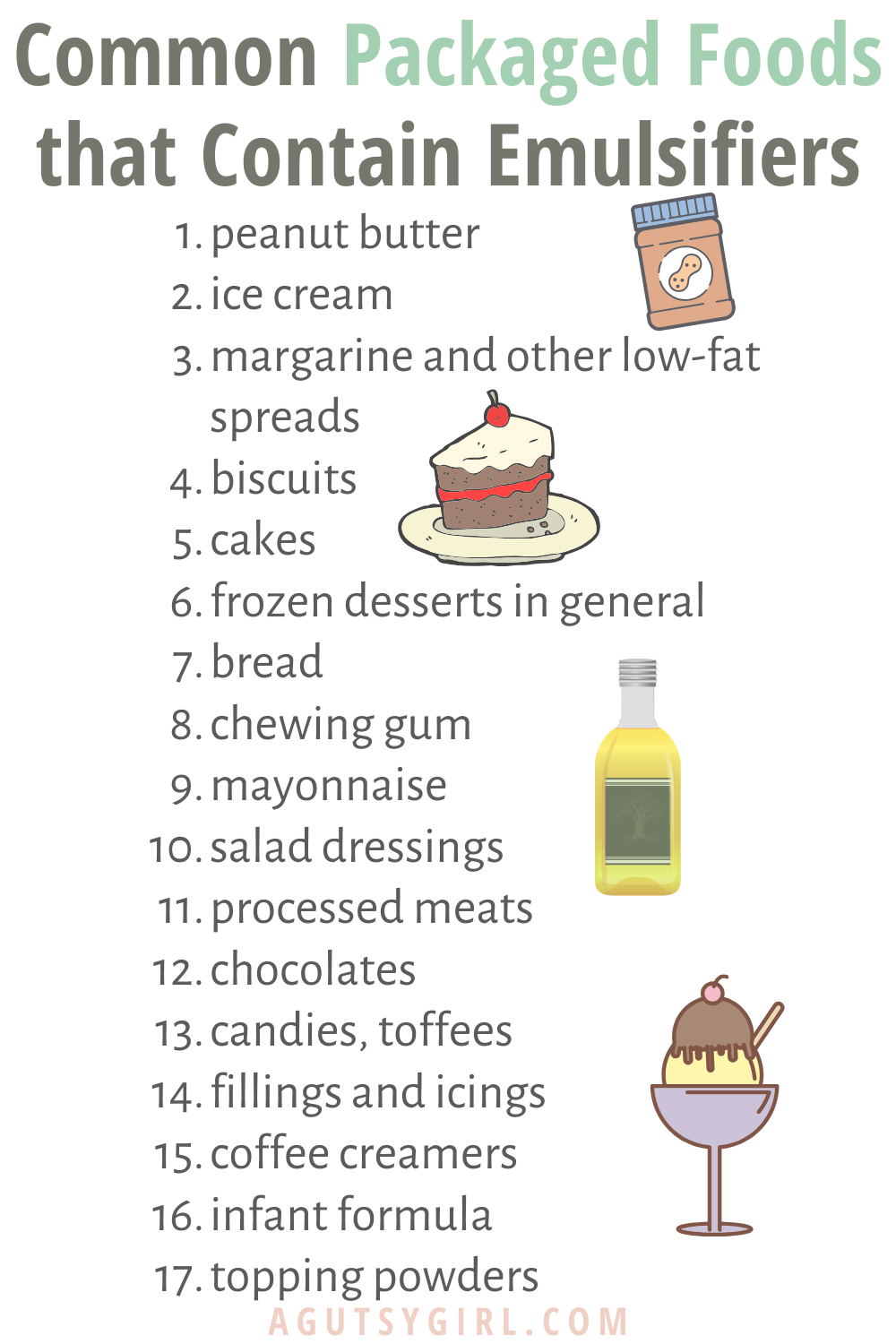All Concerning the Role of an Emulsifier in Food and Its Value in Modern Food
Emulsifiers are pivotal in modern cuisine, assisting in the mix of immiscible liquids like oil and water. Their capacity to stabilize combinations improves the structure and flavor of numerous foodstuff. From salad dressings to baked products, emulsifiers play a significant role in both industrial and home cooking. The scientific research behind their feature and the future technologies in their usage remain much less discovered. What extra could be discovered regarding these important culinary representatives?
Understanding Emulsification: The Scientific Research Behind the Refine
Emulsification might seem like an easy culinary technique, it includes intricate clinical principles that are essential for developing stable combinations of immiscible fluids, such as oil and water. At the heart of this process lies the principle of surface area tension, which protects against both fluids from blending naturally. Emulsifiers, materials that minimize surface tension, play an essential function in helping with the mix of these liquids. They have both hydrophilic (water-attracting) and hydrophobic (water-repelling) residential properties, permitting them to secure themselves at the interface between oil and water.
When an emulsifier is introduced and the mixture is flustered, it creates a safety obstacle around spread beads of one fluid within the various other, supporting the mixture. This activity not only improves texture and mouthfeel in food yet additionally adds to their visual appeal. Emulsifier In Food. Comprehending the science behind emulsification is basic in contemporary food, enabling chefs to produce a range of sauces, dressings, and emulsified meals
Common Types of Emulsifiers Used in Food
Emulsifiers are vital components in the food sector, playing a vital function in stabilizing mixes of oil and water. Different kinds of emulsifiers are typically utilized, each with special properties fit for different applications. Lecithin, derived from soybeans or egg yolks, is among the most preferred all-natural emulsifiers, commonly found in dressings and chocolates. Mono- and diglycerides, which are derived from glycerol and fatty acids, are widely made use of in baked products and margarine to improve appearance and prolong life span. Another usual emulsifier is polysorbate 80, favored for its capability to enhance the consistency of ice lotions and sauces. Additionally, xanthan gum tissue and guar periodontal offer as thickening representatives that likewise add to emulsification in gluten-free products. These emulsifiers are important to developing a stable, palatable product in contemporary food formulations, making certain a positive sensory experience for customers.
The Role of Emulsifiers in Various Food Products
A range of foodstuff depend on emulsifiers to attain desired textures and stability. These substances help with the blending of immiscible fluids, such as oil and water, which is vital in several refined foods. For circumstances, in salad dressings, emulsifiers assist keep a consistent blend, avoiding separation and enhancing life span. In baked goods, they add to a consistent crumb framework and moisture retention, enhancing overall quality.
Emulsifiers likewise play a substantial function in milk products, such as gelato and yogurt, where they support fat globules, ensuring a smooth mouthfeel. Additionally, in dressings and sauces, they enhance viscosity and boost spreadability. This functionality is important in the production of delicious chocolates, margarine, and mayo, where a cohesive product is required. In general, the use of emulsifiers in various food items is indispensable to modern food manufacturing, enhancing security and uniformity across a vast array of items.
Exactly How Emulsifiers Enhance Structure and Taste

When included into food items, emulsifiers greatly boost both structure and taste, developing a more delightful consuming experience. These compounds facilitate the blending of components that typically do not mix well, such as oil and water, resulting in a smoother, creamier consistency. This not only enhances mouthfeel however additionally allows tastes to spread uniformly throughout the item, intensifying the overall preference.

Emulsifiers in Home Food Preparation: Tips and Techniques
How can home chefs successfully utilize emulsifiers to enhance their dishes? Emulsifiers play an essential function in achieving desirable structures and tastes in homemade dishes. Making use of egg yolks in mayonnaise or hollandaise sauce allows for a stable emulsion, combining oil and water properly. Home chefs can also explore mustard, which functions as an emulsifier in vinaigrettes, ensuring a smooth uniformity.
In cooking, integrating lecithin, found in egg yolks or soy, can enhance dough security and dampness retention. Furthermore, making use of commercial emulsifiers like xanthan gum or guar periodontal can help thicken click to read sauces and dressings while preserving a luscious mouthfeel.
When creating gelato or whipped garnishes, emulsifiers can protect against ice crystal formation, leading to a smoother texture. By understanding these strategies, home cooks can significantly elevate their cooking creations, giving enjoyable and constant recipes that display the power of emulsification.
The Future of Emulsifiers in Culinary Technology
As the cooking globe remains to evolve, the role of emulsifiers is poised to become diverse and increasingly innovative. Advancements in food science are resulting in the growth of brand-new emulsifying representatives originated from natural sources, which accommodate health-conscious customers and enhance the sensory top qualities of recipes. Technologies such as plant-based emulsifiers are getting traction, allowing cooks to develop vegan and allergen-free alternatives without compromising structure or flavor.
Furthermore, using emulsifiers in molecular gastronomy is increasing, making it possible for cooks to experiment with unique structures and presentations that astound diners. As sustainability ends up being a concern, the future might see a change towards environment-friendly emulsifiers that decrease ecological influence.
Ultimately, emulsifiers will remain to play an essential function in culinary technology, connecting the gap between practice and modernity, and enabling cooks to push the limits of imagination in their kitchens.
Frequently Asked Inquiries

Are Emulsifiers Safe for Individuals With Allergies?
Emulsifiers can be safe for people with allergic reactions, depending on their specific sensitivities. Particular emulsifiers, acquired from allergenic sources like soy or eggs, might activate reactions, requiring careful active ingredient scrutiny and appointment with healthcare experts.
Just How Do Emulsifiers Influence Food Life Span?
Emulsifiers boost food service life by stabilizing blends, protecting against splitting up, and reducing microbial growth. This stability assists keep texture and flavor with time, allowing items to continue to be appealing and safe for usage longer than without emulsifiers.
Can Emulsifiers Be Derived From Natural Sources?
Yes, emulsifiers can be stemmed from natural sources such as plants, eggs, and dairy products (Emulsifier In Food). These natural emulsifiers aid support mixtures, improving texture and consistency in various food applications while being favored for health-conscious customers
What Are the Ecological Influences of Emulsifier Production?
The environmental influences of emulsifier manufacturing include resource deficiency, habitat destruction, and air pollution from artificial procedures. Natural emulsifier sourcing can click here to read minimize some effects, however on the whole, industrial methods still posture considerable eco-friendly difficulties to communities worldwide.

Exist Vegan Emulsifiers Available on the market?
Yes, there are several vegan emulsifiers readily available in the market, such as lecithin obtained from soy or sunflower, guar periodontal, and xanthan gum. These options deal with plant-based diets without jeopardizing emulsifying residential properties.
Emulsifiers are necessary active ingredients in the food sector, playing a crucial function in maintaining combinations of oil and water. A variety of food items count on emulsifiers to attain preferred appearances and stability. When incorporated into food items, emulsifiers considerably improve both appearance and taste, creating an even more enjoyable consuming experience. Furthermore, emulsifiers can maintain air pockets in whipped products like mousses and lotions, leading to a light and airy appearance. Emulsifiers enhance food Continue rack life by stabilizing mixtures, protecting against separation, and minimizing microbial development.